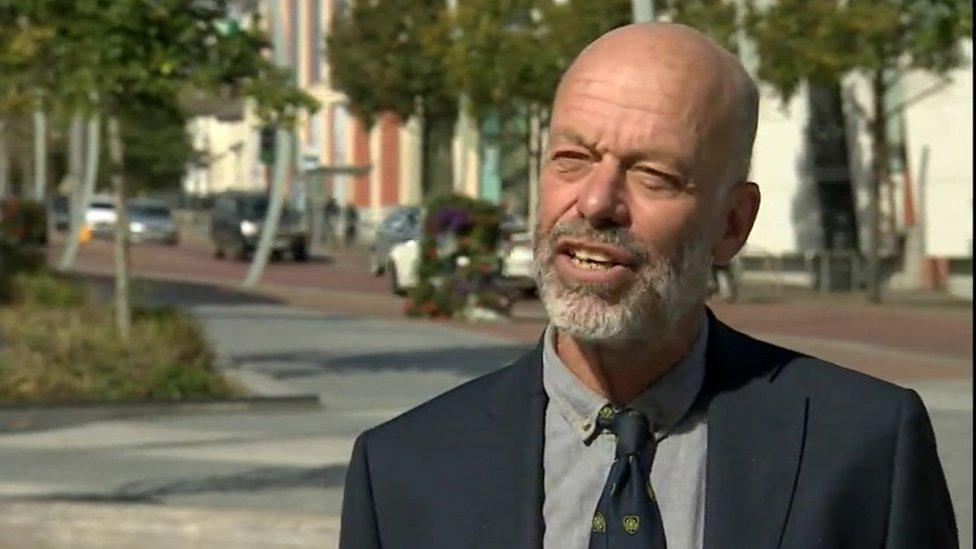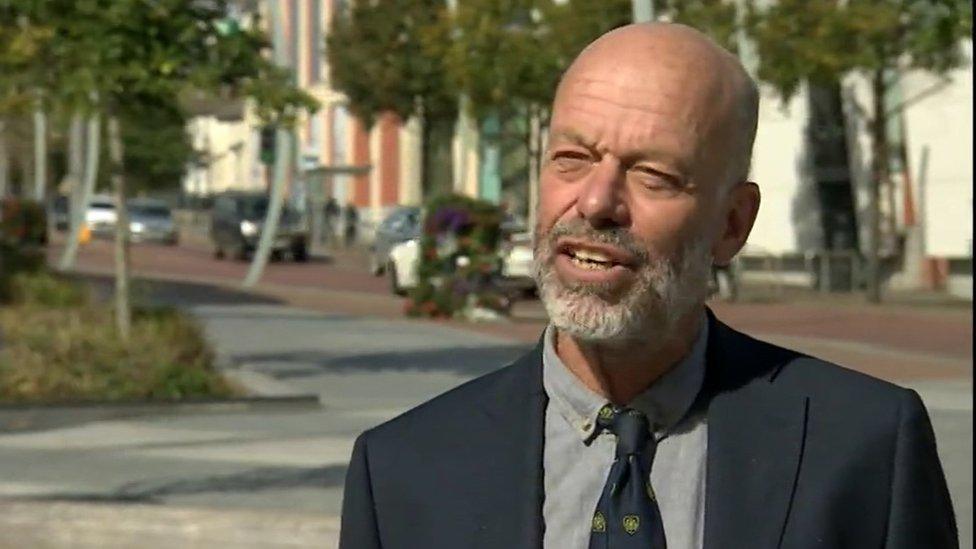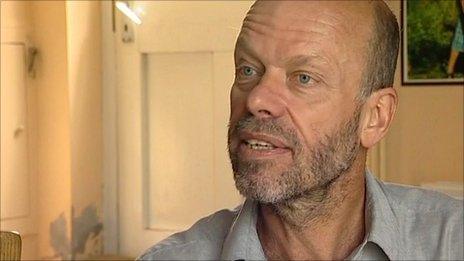Margate doctor given misconduct warning for praying with patient
- Published

Dr Richard Scott was given a formal warning in 2012 after a patient accused him of "pushing his religion" on him
A Christian doctor who "overstepped the boundaries" when he prayed with a patient has been given a warning by a medical watchdog.
Dr Richard Scott, from Margate, was found not guilty of serious misconduct by the Medical Practitioners Tribunal Service (MPTS).
He was found guilty of misconduct, which is not serious enough to warrant any restrictions on him practising.
The warning will stay on his register as a doctor for five years.
Following a three-week hearing, the MPTS ruling said: "This conduct does not meet with the standards required of a doctor and his actions have undermined public confidence and the public's trust in the medical profession.
"It risks bringing the profession into disrepute, and it must not be repeated."
The hearing was told Dr Scott spoke with a patient about his faith before clasping his patient's hand in prayer.
The medic also gave him a Bible on leaving the Bethesda Medical Centre practice, in Margate, Kent.
This is the second such warning given to Dr Scott, after a similar case in 2012.
Patient felt 'uneasy'
The patient, a 19-year-old man, went to see Dr Scott on 25 August 2022, accompanied by his mother, the tribunal sitting in Manchester was told.
The teenager told the hearing he was made to feel "uneasy" when Dr Scott started talking about his faith.
Two weeks later the teenager's mother made a complaint to NHS England.
Dr Scott, who ran two mission hospitals in Tanzania before becoming a GP, told the tribunal hearing he decided against the use of anti-depressants for his patient's mental health issues.
Instead he discussed counselling before asking permission to "tackle his issues from a third, spiritual, angle".
In June 2012 the General Medical Council (GMC) issued Dr Scott with the warning letter after a patient complained the GP had abused his position to push his religion upon him.
GMC guidance states doctors may practise medicine in accordance with their beliefs provided they do not cause distress to patients.
And they must not impose or express personal beliefs or values, including political, religious and moral beliefs, to patients in ways that exploit their vulnerability or are likely to cause them distress.

Follow BBC South East on Facebook, external, on Twitter, external, and on Instagram, external. Send your story ideas to southeasttoday@bbc.co.uk, external.
Related topics
- Published4 September 2023

- Published14 June 2012
